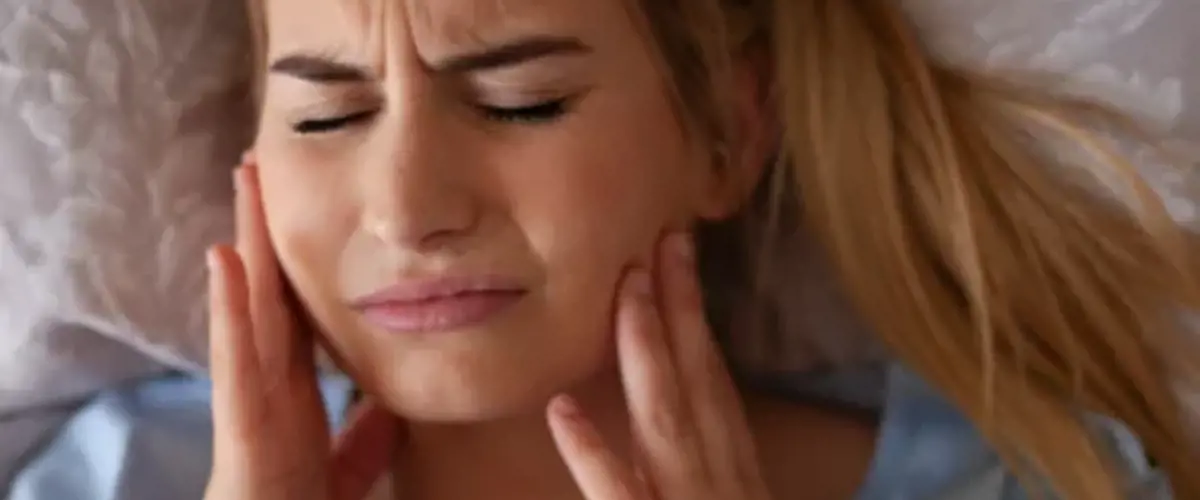| Dental Armour

In the morning, when you first wake up do you find yourself experiencing headaches, jaw ache, tooth pain, or any other type of oral pain or discomfort? If so, then this could be an indication of bruxism. Bruxism is basically a condition whereby those affected clench and grind their teeth excessively, often at night while they sleep.
If you do suffer with bruxism, or any similar conditions, you should ideally speak to your dentist as soon as possible, to discuss the use of mouthguards or nightguards.
Night guards are fantastic devices for people who suffer from teeth grinding, but the only issue is knowing whether they’re right for you. Right now, you might be asking should I wear a nightguard at night? In all honesty, that can depend on a number of factors.
To help you decide whether a night guard or mouthguard is right for you however, here’s a more detailed look at the key differences, and what each device can do for you.
Should I wear a mouthguard at night?
Mouthguards are great inventions, especially for people who play sports or who are involved in physically demanding activities. Mouthguards, however, are NOT suitable to be worn at night.
A mouthguard that is designed to be used during sports (like during a football or rugby match), is designed to protect the teeth, mouth, tongue, and gums during a game. They’re designed to be worn for relatively short amounts of time and they are NOT suitable for wearing in bed while you sleep.
Though similar in appearance, mouthguards and night guards are very different and you should not wear a mouthguard at night, for the same reasons that you should not wear a nightguard before taking part in sports.
Key reasons not to wear a mouthguard at night?
Here’s a look at a couple of key reasons not to wear a mouthguard at night.
Teeth grinding is not the same as blunt force trauma
The idea behind a mouthguard is to protect the teeth from blunt force trauma. Mouthguards are strong and are designed to provide a protective barrier between your teeth and gums and whatever it is that happens to be hurtling towards your mouth.
Mouthguards protect the teeth from being damaged by blows to the face, whether it be by a punch, a kick, a ball, or anything else.
To be able to withstand these blows, they need to be tough, and wearing one for 7 – 9 hours each night would not only be painful, it could actually damage your mouth, teeth, and gums.
Plaque can damage your gums
Plaque build ups in the mouth can not only damage the teeth, they can also damage the gums as well, causing them to erode away and resulting in gum disease and other similar conditions.
Wearing a mouthguard at night would prevent saliva from reaching your gums. Saliva contains important elements such as calcium, phosphate, and bicarbonate. These elements help to protect the teeth and damage minor tooth decay, plus they’re also compounds while neutralising plaque acids.
If saliva is unable to reach the gums, plaque deposits could accumulate and damage your teeth and gums, which is the last thing you’ll want.
What is the difference between a mouthguard and a nightguard?
Obviously, the main differences between mouthguards and nightguards is the fact that one is designed to be worn at night, and one is designed to be worn for short periods of time when taking part in physically demanding activities.
Nightguards are made from thin, yet durable materials which protect the teeth and prevent them from rubbing and grinding together. They’re designed with protection, but also comfort in mind.
Mouthguards are much tougher and more rigid because they protect against blunt force trauma and are basically there to stop the teeth from being damaged or knocked out entirely. Consequently they’re harder, firmer, more rigid, and are designed for protection rather than comfort.
What are the benefits of custom night guards from Dental Armour?
Dental Armour offers a wide range of custom night guards, each made specifically for each individual patient. As a result, they’re proving very popular here in Perth. Key benefits include:
- They’re comfortable
- Long-lasting
- Tri-lamination tech
- Affordable
- Easy to clean and maintain
- Promote a good night’s sleep
- They help to treat and prevent bruxism
- They protect the teeth, mouth, tongue, and gums
FAQs
Can I use my mouthguard for bruxism?
No.
Mouthguards, like the ones offered here at Dental Armour, are designed to protect the teeth during sports. They are not suitable for bruxism.
If you suffer from bruxism, you will need a custom night guard.
Is it okay to sleep with a mouthguard?
No.
As mentioned, mouthguards are designed to protect against blunt force trauma during physically demanding activities. They are therefore not suitable for wearing to bed.
Grab your custom night guard now!
If you suffer from bruxism and find it’s affecting your sleep and quality of life, get in touch with the friendly team at Dental Armour today!
We offer a wide range of nightguards and mouthguards, all for very affordable prices, all custom made, and all guaranteed to protect you and your teeth.
